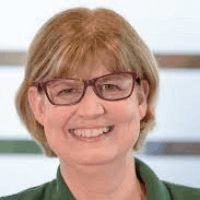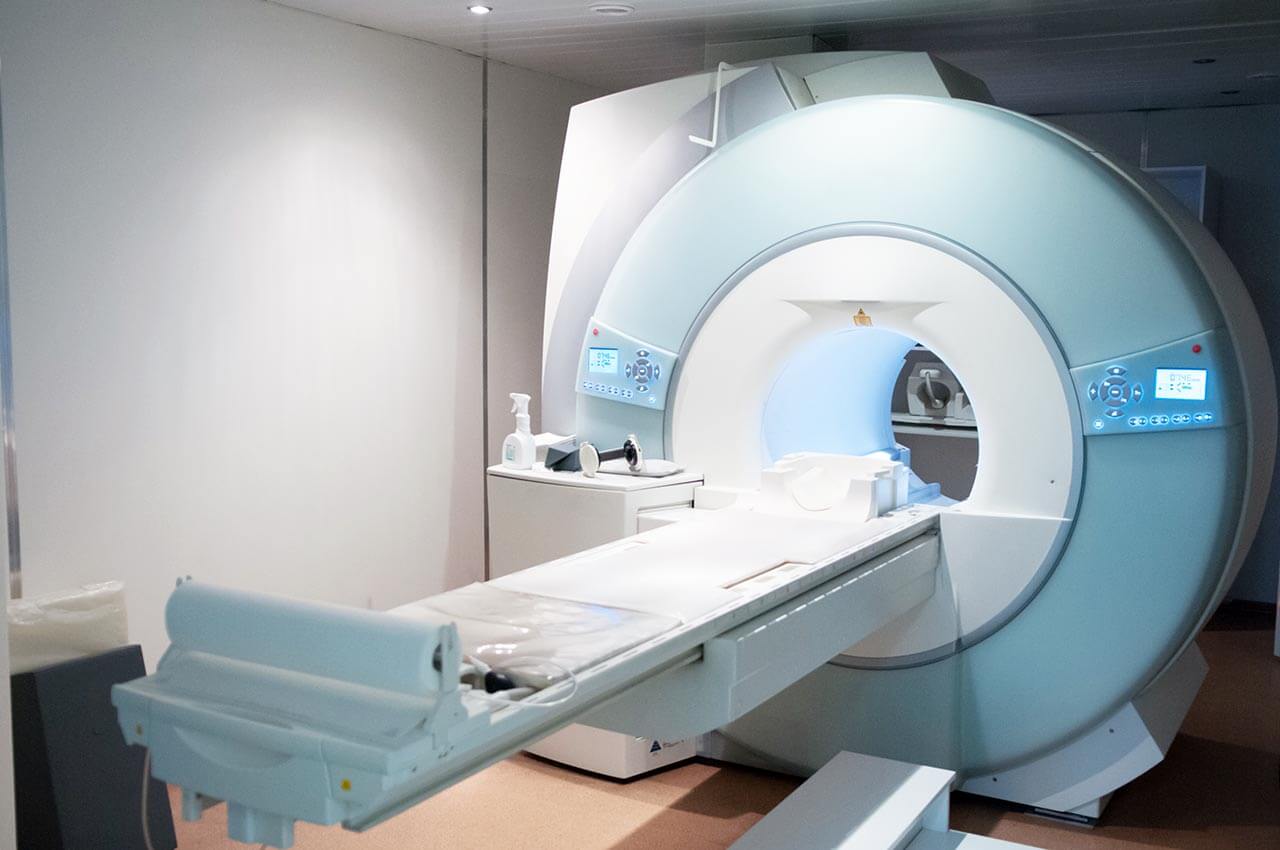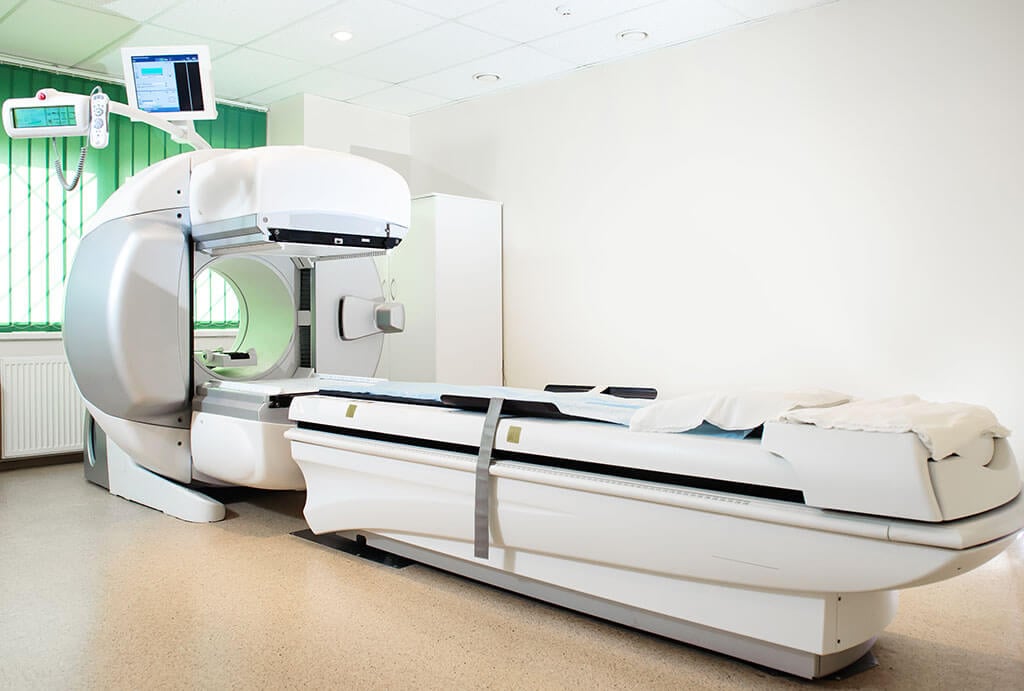
The program includes:
- Initial presentation in the clinic
- clinical history taking
- review of medical records
- physical examination
- laboratory tests:
- complete blood count
- general urine analysis
- biochemical analysis of blood
- inflammation indicators (CRP, ESR)
- indicators blood coagulation
- gynecological examination
- ultrasound examination: pelvis, abdomen
- preoperative care
- implantation free synthetic loop
- symptomatic treatment
- control examinations
- the cost of essential medicines and materials
- nursing services
- full hospital accommodation
- explanation of future recommendations
Required documents
- Medical records
- Pelvic ultrasoud (if available)
- Pelvic MRI/CT scan (if available)
Service
You may also book:
 BookingHealth Price from:
BookingHealth Price from:
About the department
The Department of Gynecology, Gynecologic Oncology, Urogynecology and Mammology at the DKD HELIOS Clinic Wiesbaden offers the full range of services in the fields of its competence. The department's medical team provides both diagnostics and treatment of diseases of the female genital organs and mammary glands. The primary focus of the specialists' work is the treatment of oncological diseases of the female reproductive system. The diagnostic rooms of the medical facility are equipped with advanced ultrasound devices for vaginal sonography and breast sonography, including high-resolution ultrasound units for color Doppler sonography, 2D and 3D duplex sonography. The department provides conservative and surgical treatment. The operating rooms of the department comply with modern hygiene and safety standards. They have all the required equipment to perform classic open and sparing minimally invasive surgical procedures. The rich clinical experience of the department's gynecologists allows them to perform surgery of any complexity, achieving an excellent treatment result. The department is headed by Dr. med. Gabriele Huhn.
Special attention in the department's clinical practice is paid to the diagnostics and treatment of oncological diseases of the female genital organs. The doctors mostly deal with the treatment of patients with uterine, cervical and ovarian cancers. In case of suspected cancer, the diagnostic protocol includes laboratory tests, high-resolution ultrasound, Doppler ultrasound and biopsy. If the results of these diagnostic tests are not enough to make an accurate diagnosis, gynecologists resort to interventional methods, for example, hysteroscopy and colposcopy. After assessing the diagnostic results, gynecologists, together with oncologists, chemotherapists, radiation therapists and other specialists, develop an optimal treatment regimen adapted to the clinical indications of a particular patient. The first-line treatment for female genital malignancies is surgical resection of the tumor. Small tumors are resected using laparoscopic surgical techniques. Such laparoscopic operations are performed on an outpatient basis, which eliminates the need for hospitalization. Oncological diseases require a complex therapeutic approach, while monotherapy often does not give an effective result. Taking this into account, the department's specialists supplement the surgical intervention with such conservative treatments as chemotherapy, radiation therapy, hormonal therapy, antibody therapy, immunotherapy and other procedures.
The department's medical team also successfully treats benign gynecologic diseases. The most common of these are uterine fibroids, endometriosis and cervical dysplasia. In addition, the doctors of the department demonstrate good results in the treatment of hormonal disorders, namely, polycystic ovary syndrome, premenstrual syndrome, menstrual irregularities and pathological manifestations of menopause. After the comprehensive assessment of the patient's endocrine profile, the doctor selects the optimal complex of drugs to correct the hormone levels or recommends hormone replacement therapy. The doctors from the Department of Endocrinology are often involved in the therapeutic process.
In the field of mammology, the department offers the full range of diagnostics and treatment of breast diseases. The main focus is on the treatment of breast cancer, which today is one of the most aggressive and relatively common forms of malignant diseases in women. At the diagnostic stage, the specialists use modern diagnostic examinations, including digital mammography, high-resolution sonography, MRI and biopsy. In the case of breast cancer conformation, the patient will receive an individual treatment regimen. The treatment is based on tumor resection, which, if possible, is performed using sparing laparoscopic techniques. To consolidate the results of surgical treatment and to completely destroy the tumor cells remaining in the woman's body, chemotherapy and hormonal therapy are used. The area of expertise of the department's mammologists also includes the treatment of benign breast diseases in women and gynecomastia in men.
The therapeutic options of the department are complemented by the diagnostics and treatment of urogynecologic diseases in women – urinary incontinence and pelvic organ prolapse. The medical care for patients with such pathologies is provided in close cooperation with urologists and proctologists. The specialists mostly manage to achieve a cure with the help of conservative treatment methods (pharmacotherapy, a special course of physiotherapy, biofeedback, etc.), but in certain clinical cases they still have to resort to interventional procedures.
The department's main clinical focuses include:
- Gynecologic oncology
- Diagnostics and treatment of uterine cancer
- Diagnostics and treatment of cervical cancer
- Diagnostics and treatment of ovarian cancer
- General gynecology
- Diagnostics and treatment of uterine fibroids
- Diagnostics and treatment of endometriosis
- Diagnostics and treatment of cervical dysplasia
- Diagnostics and treatment of polycystic ovary syndrome
- Diagnostics and treatment of menstrual irregularities
- Diagnostics and treatment of pathological manifestations of menopause
- Urogynecology
- Diagnostics and treatment of urinary incontinence
- Diagnostics and treatment of pelvic organ prolapse
- Mammology
- Diagnostics and treatment of breast cancer
- Diagnostics and treatment of benign breast diseases
- Diagnostics and treatment of gynecomastia in men
- Other medical services
The department's range of therapeutic services includes:
- Conservative treatment methods
- Drug treatment
- Hormone replacement therapy
- Chemotherapy
- Physiotherapy and biofeedback for urogynecological diseases
- Surgical treatment methods
- Sparing minimally invasive surgery
- Classic open surgery
- Reconstructive surgery after breast cancer treatment
- Other treatment methods
Photo of the doctor: (c) DKD Helios Klinik Wiesbaden
About hospital
The DKD HELIOS Clinic Wiesbaden has long made a name for itself in the international medical arena by introducing an optimal model of medical care, combining the use of the most advanced medical technologies, the experience of highly qualified doctors and impeccable quality of patient care. The medical facility first opened its doors to patients in 1970. The world famous Mayo Clinic Rochester in America served as a model for the design of the medical complex. Since the foundation of the clinic, the main direction of its activities has been comprehensive diagnostics of complex diseases integrated into an interdisciplinary treatment concept. Today, an integral part of clinical practice is also preventive diagnostics aimed at the early detection of pathological changes in the human body. In recent years, the clinic has been actively developing the direction of surgery, in which it has significantly succeeded. The clinic enjoys a reputation as one of the best medical facilities in Europe in the field of endocrine and colorectal surgery, as well as in hernia repair surgery.
The clinic has 24 specialized departments. Each of them offers a team of experienced doctors, whose main value is the patient's health. The work of all doctors of the medical facility is based on a single credo – "Treat not a disease, but a patient". According to this belief, the course of treatment should be as individual as possible, taking into account the patient's physical characteristics, lifestyle, diet, emotional state, etc.
The clinic's bed capacity consists of 138 inpatient beds and 60 beds in a day hospital. Many diagnostic and therapeutic procedures are performed on an outpatient basis. The diagnostic and treatment rooms, like the operating rooms of the clinic, are equipped with state-of-the-art technology to ensure the observance of strict hygiene and safety standards. The advanced medical equipment allows detecting the slightest changes in the functioning of organs and their structure with impeccable accuracy, thanks to which doctors can diagnose complex pathologies at the very early stages. This greatly increases the chances of a successful cure.
The location of the clinic in Wiesbaden, known as one of the oldest thermal spas in Europe, is another pleasant advantage for the patients. Arriving at the clinic for a preventive diagnostic examination, one can improve his health in the healing thermal springs, as well as enjoy the sightseeing of historical monuments. The medical center is located in the immediate vicinity of the English style Spa Park founded in the distant 1852, so in the free time from medical procedures one can take a pleasant walk in the beautiful park.
Photo: (с) depositphotos
Accommodation in hospital
Patients rooms
The patients of the DKD HELIOS Clinic Wiesbaden live in comfortable single and double rooms. Each patient room has an ensuite bathroom with shower and toilet. The standard patient room furnishings include an automatically adjustable bed, a bedside table, a table and chairs, a TV and a telephone.
The clinic also offers enhanced comfort rooms with spacious bathrooms, which additionally include a large mirror, hairdryer, changeable towels and toiletries. These patient rooms also have a safe for storing valuables, a free minibar with soft drinks, a flat-screen TV with satellite channels and free Wi-Fi.
Meals and Menus
The patients of the clinic are offered tasty and balanced three meals a day: breakfast, lunch and dinner. If for some reason you do not eat all the foods, you will be offered an individual menu. Please inform the medical staff about your dietary preferences prior to treatment.
The clinic also has a cozy cafe where one can taste delicious snacks, salads, main courses and desserts. One can also enjoy aromatic coffee, delicious tea and soft drinks in the cafe.
Further details
Standard rooms include:
Religion
The religious services are available upon request.
Accompanying person
During the inpatient program, the accompanying person can live with the patient in a patient room or a hotel of his choice. Our managers will help you choose the most suitable option.
Hotel
During the outpatient program, the patient can stay at the hotel of his choice. Our managers will help you choose the most suitable option.





